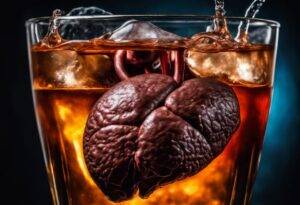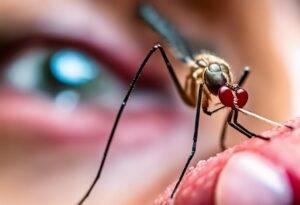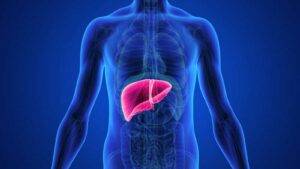Fatty liver disease is a growing health concern worldwide, affecting millions of people. As researchers strive to find effective dietary interventions, three diets have gained attention for their potential benefits: the Mediterranean diet, ketogenic diet, and DASH (Dietary Approaches to Stop Hypertension) diet. In this evidence-based blog post, we will delve into the efficacy of these diets in managing and reversing fatty liver disease, analyzing their specific aspects, potential risks, and limitations.
The Effectiveness of Mediterranean, Ketogenic, and DASH Diets for Treating Fatty Liver Disease
The Mediterranean Diet:
The Mediterranean diet has long been acclaimed for its various health benefits and its potential to improve fatty liver disease. Key components that contribute to its effectiveness include high consumption of fruits, vegetables, whole grains, legumes, olive oil, and fish, alongside moderate intake of dairy and red wine. These components provide essential nutrients, antioxidants, and healthy fats, aiding in improved liver function, reduced inflammation, and weight loss.
However, there are a few potential risks or side effects associated with the Mediterranean diet. Such risks may include higher calorie consumption due to the inclusion of foods like olive oil, nuts, and avocados, leading to weight gain. Additionally, alcohol consumption, although moderate, may pose risks for individuals with existing liver damage.
Just a little heads up: some of the links on this site may be affiliate links, which means if you make a purchase through them, we might get a little kickback. But don’t worry, it won’t cost you a cent extra! Think of it as the universe secretly thanking us for helping you find a great deal. Your support keeps the good vibes flowing.
Comparing the Ketogenic Diet:
The ketogenic diet, characterized by extremely low carbohydrate intake, high fat consumption, and moderate protein intake, has shown promise in managing fatty liver disease. By inducing a state of ketosis, where the body relies on fat for fuel, the ketogenic diet can reduce liver fat accumulation and improve insulin sensitivity.
However, the ketogenic diet has limitations and potential risks. Its severe carbohydrate restriction may lead to nutrient deficiencies, especially in vitamins and minerals found predominantly in carbohydrates. Additionally, long-term adherence to this diet can be challenging, often resulting in weight regain once discontinued.
The DASH Diet and Fatty Liver Disease:
The DASH diet, originally designed to lower blood pressure, also shows potential in managing or reversing fatty liver disease. With its emphasis on fruits, vegetables, whole grains, lean proteins, and low-fat dairy, the DASH diet promotes weight loss, reduced insulin resistance, and improved liver function.
Nevertheless, there are some drawbacks to the DASH diet. Its reliance on low-fat dairy products may limit the intake of important nutrients found in full-fat dairy. Moreover, the DASH diet may not be suitable for individuals on strict sodium restriction due to its moderate sodium content.
Customization and Personalization of the Mediterranean Diet:
One of the key advantages of the Mediterranean diet is its flexibility and ability to be customized to individual needs. While the core components remain intact, variations can be made to accommodate specific preferences or dietary restrictions. This adaptability increases its long-term sustainability and makes it easier for individuals to adhere to.
On the other hand, the ketogenic diet lacks customization options, as its success relies heavily on achieving and maintaining a state of ketosis. This restrictiveness may contribute to difficulties in long-term adherence and limit its applicability to different population groups.
Important Dietary Recommendations within the Mediterranean Diet:
To maximize the effectiveness of the Mediterranean diet for fatty liver disease treatment, certain dietary recommendations should be followed. These include:
1. Consuming a variety of fruits and vegetables to obtain a wide range of essential nutrients.
2. Incorporating whole grains, legumes, and nuts to provide adequate fiber, vitamins, and minerals.
3. Prioritizing fatty fish as a source of omega-3 fatty acids.
4. Utilizing olive oil as the primary source of fat due to its anti-inflammatory properties.
5. Limiting red meat and processed food consumption to reduce the intake of harmful saturated fats and additives.
Potential Nutrient Deficiencies in the Ketogenic Diet:
The ketogenic diet’s strict macronutrient composition and carbohydrate restriction can lead to several nutrient deficiencies. These may include inadequate intake of fiber, B vitamins, vitamin C, magnesium, and potassium, all of which play vital roles in liver health and overall well-being. Supplementation or careful nutrient planning is crucial to mitigate these deficiencies.
Interactions Between Medications for Fatty Liver Disease and the Mediterranean Diet:
The Mediterranean diet, comprising natural whole foods, is generally safe to consume alongside common medications used for fatty liver disease. However, individuals should consult their healthcare provider to ensure there are no potential interactions or contraindications specific to their medication regimen.
Insulin Resistance and the Mediterranean Diet:
Insulin resistance, often present in individuals with fatty liver disease, can be positively influenced by the Mediterranean diet. The diet’s nutrient-rich components, healthy fats, and low glycemic load can improve insulin sensitivity, assisting in fatty liver disease management. Moreover, weight loss achieved through the Mediterranean diet can further contribute to improved insulin resistance.
Concerns of Nutrient Deficiencies with Long-Term Ketogenic Diet Use:
Long-term adherence to the ketogenic diet may lead to various nutrient deficiencies. The diet’s restriction of fruits, whole grains, and certain vegetables can result in inadequate intake of essential vitamins, minerals, and fiber. Monitoring nutrient levels and considering supplementation is vital to prevent any potential deficiencies.
Benefits of the DASH Diet Beyond Fatty Liver Disease Management:
In addition to its impact on fatty liver disease, the DASH diet is renowned for its ability to lower blood pressure and reduce the risk of cardiovascular complications. Its emphasis on whole foods, low sodium intake, and nutrient-rich sources supports overall heart health, making it an attractive dietary approach for individuals with fatty liver disease and associated cardiovascular risk factors.
The Mediterranean Diet and Herbal Supplements in Adjunctive Therapies:
Though the Mediterranean diet is rich in naturally occurring antioxidants and anti-inflammatory compounds, the use of herbal supplements in adjunctive therapies for fatty liver disease should be approached with caution. Individuals should consult their healthcare provider to ensure there are no interactions or contraindications with specific herbal supplements and medications they are taking.
Weight Loss and Adherence to the Ketogenic Diet:
The ketogenic diet, with its ability to induce weight loss, appeals to individuals seeking both fatty liver disease management and weight reduction. However, adherence to the ketogenic diet may affect weight loss goals in the long term due to its restrictive nature and potential difficulties in maintaining ketosis. A gradual transition to a more balanced, sustainable diet may be beneficial for individuals with long-term weight management goals.
Potential Worsening of Hepatic Steatosis during the Initial Phase of the Mediterranean Diet:
During the initial phase of the Mediterranean diet, which includes a relatively higher intake of healthy fats such as olive oil, there is a possibility of worsening hepatic steatosis in some individuals. Monitoring liver health markers and adjusting the dietary composition, especially in individuals with severe fatty liver disease, is essential to prevent any potential adverse effects.
Just a little heads up: some of the links on this site may be affiliate links, which means if you make a purchase through them, we might get a little kickback. But don’t worry, it won’t cost you a cent extra! Think of it as the universe secretly thanking us for helping you find a great deal. Your support keeps the good vibes flowing.
Recommended Carbohydrate Consumption on the Ketogenic Diet:
The ketogenic diet’s strict carbohydrate restriction typically limits daily carbohydrate intake to around 20-50 grams. However, for individuals with fatty liver disease, a higher carbohydrate intake (up to100 grams) may still induce ketosis while mitigating potential nutrient deficiencies and ensuring better long-term adherence.
Enhancing Efficacy of the DASH Diet with Exercise:
Combining the DASH diet with specific exercise regimens can enhance its efficacy in managing fatty liver disease. Regular physical activity, along with the DASH diet’s nutrient-rich profile, promotes weight loss, improved insulin sensitivity, and enhanced liver function. Consultation with a healthcare professional or registered dietitian can help determine the appropriate exercise regimen based on individual needs and capabilities.
Impact of the Mediterranean Diet on Hepatic Triglyceride Production and Deposition:
The Mediterranean diet’s emphasis on healthy fats, abundant fruits and vegetables, and the inclusion of omega-3 fatty acids can help reduce hepatic triglyceride production and deposition. The diet’s anti-inflammatory properties and beneficial impact on lipid metabolism contribute to improved liver health and reduced fatty liver disease severity.
Precautions for Existing Liver Damage while Following the Ketogenic Diet:
Individuals with existing liver damage should proceed with caution when considering the ketogenic diet. Due to its high-fat content, the ketogenic diet may place additional strain on the liver, impacting overall liver function. Monitoring liver health markers and consulting with a healthcare provider is essential for those with pre-existing liver conditions.
Role of Sodium Intake in the Effectiveness of the DASH Diet:
The DASH diet’s moderate sodium intake, primarily from natural food sources, contributes to its effectiveness in managing fatty liver disease. By minimizing excessive sodium intake from processed foods, the DASH diet helps regulate blood pressure, reduces fluid retention, and facilitates liver regeneration. Individuals with sodium-sensitive conditions may need to adjust the sodium content of the DASH diet accordingly.
Incorporating Intermittent Fasting into the Mediterranean Diet:
Intermittent fasting, when incorporated into the Mediterranean diet, can offer additional health benefits for individuals with fatty liver disease. Controlled periods of fasting can improve insulin sensitivity, facilitate weight loss, and enhance metabolic flexibility. Healthcare professionals should be consulted to ensure the appropriate implementation of intermittent fasting based on individual needs.
Contraindications for the Ketogenic Diet in Fatty Liver Disease Treatment:
Although the ketogenic diet shows potential in managing fatty liver disease, there are specific medical conditions or medications that may contraindicate its use. Individuals with pancreatitis, gallbladder disease, impaired liver function, or those taking medication requiring consistent carbohydrate intake should exercise caution or seek guidance from healthcare professionals before embarking on the ketogenic diet.
Conclusion:
The Mediterranean diet, ketogenic diet, and DASH diet each offer unique approaches to managing and reversing fatty liver disease. While the Mediterranean diet provides a flexible and sustainable long-term dietary pattern, the ketogenic diet shows promise in reducing liver fat accumulation and improving insulin resistance. The DASH diet, designed primarily for blood pressure management, is effective in promoting weight loss and improving liver function. By understanding the specific aspects, risks, and limitations of each diet, individuals can make informed choices and work with healthcare professionals to tailor their dietary approach for optimal liver health
1. American Liver Foundation: https://liverfoundation.org/for-patients/about-the-liver/diseases-of-the-liver/fatty-liver/
2. National Institute of Diabetes and Digestive and Kidney Diseases (NIDDK): https://www.niddk.nih.gov/health-information/liver-disease/nafld-nash/definition-facts
3. Mayo Clinic: https://www.mayoclinic.org/diseases-conditions/nonalcoholic-fatty-liver-disease/diagnosis-treatment/drc-20354573
4. Cleveland Clinic: https://my.clevelandclinic.org/health/diseases/15535-fatty-liver
5. British Liver Trust: https://britishlivertrust.org.uk/liver-information/liver-conditions/fatty-liver-disease/
6. World Journal of Hepatology: https://www.ncbi.nlm.nih.gov/pmc/articles/PMC4092969/
7. Journal of Hepatology: https://www.journal-of-hepatology.eu/article/S0168-8278(12)00378-5/fulltext
8. National Library of Medicine – PubMed: https://pubmed.ncbi.nlm.nih.gov/
9. American Association for the Study of Liver Diseases (AASLD): https://www.aasld.org/
10. National Health Service (NHS) – UK: https://www.nhs.uk/conditions/non-alcoholic-fatty-liver-disease-nafld/treatment/
fatty liver, liver health, liver disease, liver function, fatty liver disease, diet, healthy diet, nutrition, healthy eating, healthy lifestyle, weight loss, liver-friendly diet, liver health diet, liver detox, liver cleanse, liver-friendly foods, liver-friendly recipes, Mediterranean diet, DASH diet, vegetarian diet, plant-based diet, low-sodium diet, low-fat diet, low-carb diet, high-fiber diet, food for liver health, fatty liver remedies, fatty liver prevention, fatty liver treatment, liver-supportive nutrients, liver-loving foods, healthy living, nutrition tips, lifestyle changes, healthy habits

Just a little heads up: some of the links on this site may be affiliate links, which means if you make a purchase through them, we might get a little kickback. But don’t worry, it won’t cost you a cent extra! Think of it as the universe secretly thanking us for helping you find a great deal. Your support keeps the good vibes flowing.
.

































































































